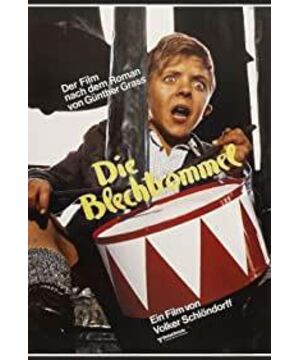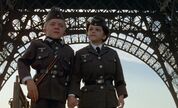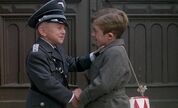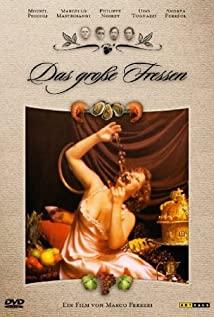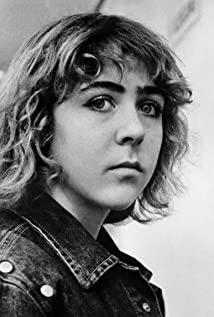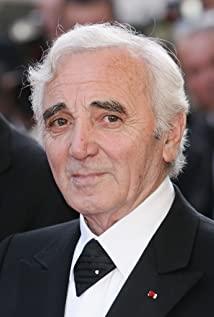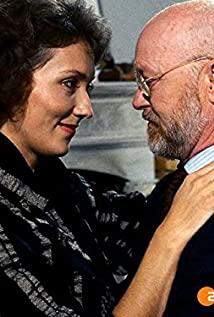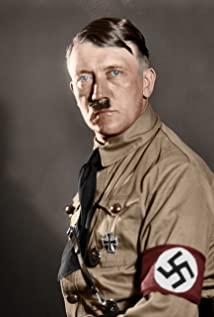The absurd, grotesque, and magical fill the entire film. I like films with a strong sense of history (especially war films, but this is the first time I have seen such a distinctive war film), but this rich historical fact was directed by the director. The humorous and absurd lens language is perfectly harmonious. The humorous gestures and ridicule style throughout the film are the film's strengths, and the exciting exciting plot and slightly perverted erotic scenes are estimated to arouse the hormones of most people. The strange shooting techniques and the almost crazy plot settings are very shocking and baptized. This may be thanks to the original author of the novel. After all, most of the wonderful plots are conceived by the author based on history, but this is enough to see that the director's imagination is amazing, so that he can make a fantasy film that is similar to history and related to history. 's film.
Each character in the film has extremely obvious characteristics, and the ending of each character is inevitable and reasonable. Oscar's father (not his biological father), a typical vulgar petty citizen who followed suit and fell with the wind, was brainwashed and joined the Nazis. Later, he had a relationship with the housemaid and gave birth to a son. Later, the Soviet army captured their home - but Ze, and then brutally murdered. Personally, I think he loves Oscar, he knows about his wife's infidelity with her cousin, and he also knows that the child may not be his. He's a comfortable, power-worshipping man who can adapt to a single diet (eel, which means compromise) from any source, and can endure his wife's infidelity. But the usual quietness does not mean that his heart is really hopeless. He naively thought that the era of his own and true "freedom" had come, and it was just a dream. Maybe he really wanted to protect his family, but it could be imagined that in those times due to his character flaws, he had no choice. Oscar's uncle and mother should be said to be the same kind of people. They fell in love with each other and gave birth to Oscar, who has the same pupil color as Yang. They are moderately respectful, yearning for truth, love and freedom. Young's initial flinch when he took the gun at the newspaper office was in stark contrast to the poker card he gestured to his son Oscar before he finally died, when he should have really understood the truth. The mother's gluttony of seafood in order to miscarry and eventually die is one chapter in the absurd plot.
"Symbolism" is a frequent tactic in movies. The above character analysis is not over yet, combining symbols and characters to say the two most important characters in this film. The first is the grandmother, she can be said to have witnessed the development and the rise and fall of the whole family. At first, she welcomed the arrival of her husband uneasily (welcome to the skirt to take refuge), and in the end, she was alone. But he quietly bid farewell to his grandson and the only remaining relatives. At first she sold geese and goose eggs, and she lived a prosperous life. Later, it got worse every day. Everyone knew what it meant. The grandmother's skirt is a very important symbol in the film, and the grandmother is the skirt with the big skirt from beginning to end. Some things never change, I was born on this land where I was born and raised, and I'm going to die here, that's the concept of my grandmother's generation of villagers. But what difference would it make even if I moved away! Big people will always change one after another, and life will still be like the old chapters. What do I want? All I need is a gentle breeze to move the skirt, and don't let others discover the secret below.
Oscar has not grown up since he was three years old. The great Oscar was once mistaken for a fool by others, but in the eyes of mortals, he is a fool. He didn't want to grow up, he saw more ugliness in the adult world, and it was enough to see his uncle seduce his mother's feet. He played the drums while Hitler was speaking, turning a brainwashing class into a "danube of love" that made everyone dance and fall in love. He willfully clings to his little tin drum, which is the meager freedom. I represent everyone and I want my own freedom. I did it stubbornly, but you stupid people didn't see it. His first love was the maid at home. Such a deformed love for everyone is incomprehensible. Only Oscar himself can do it. A mature heart really needs it. He joined the Nazis to give the Nazis the only relief from being uncaring. How ridiculous to watch a bunch of dwarfs perform a scene on stage, but the one the Nazis did was exactly the same. In the end, Oscar made a joke with his father, but because of this little joke, the Russian army shot and killed his father. This is different from the card in Yang's hand. One is the optimistic courage to live, and this shiny Nazi medal is a roadblock to living.
War is cruel, Oscar walks alone on the road to experience war, willfully refuses to grow up, and does not want to experience more cruelty. In the end, Oscar buried the drum with his father, and he unexpectedly gained the right to grow up again. Fortunately, we have hope, love is always there.
View more about The Tin Drum reviews


